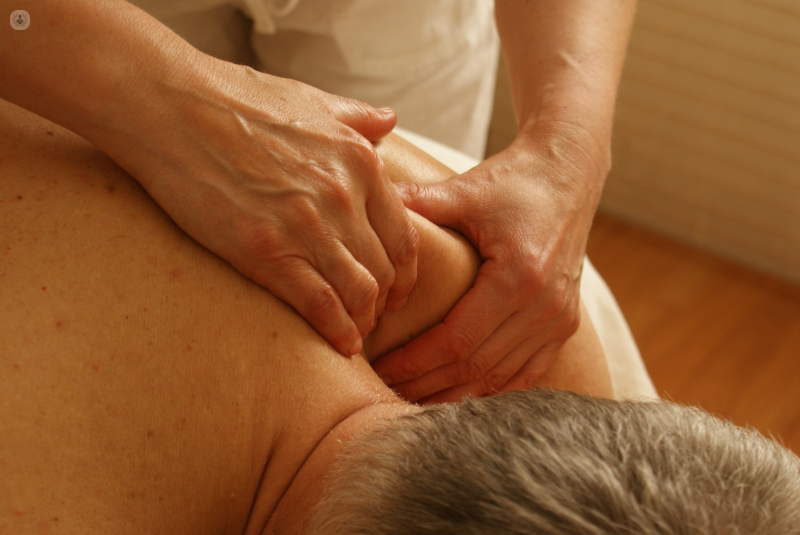

What is shoulder tendonitis?
Tendonitis means the inflammation of a tendon, in which micro tears and areas of necrosis occur. Tendonitis in the shoulder can mainly affect the long portion of the brachial biceps and the muscles of the rotator cuff.

Prognosis:
Physical therapy and exercise are usually effective to improve the symptoms and reduce shoulder pain. If these exercises do not work, surgery may be needed, otherwise the tendon may rupture completely.
Symptoms of shoulder tendonitis:
The symptoms of shoulder tendonitis are:
- Inflammatory pain
- Pain from pressure on the tendon
- Lack of strength
- Difficulty to perform daily activities
- Pain when performing active shoulder movements and pain when stretching the muscle tendon.
Medical tests for shoulder tendonitis:
Tests to diagnose shoulder tendonitis are as follows:
- Ultrasound scan
- X-ray
- MRI scan
- Computed tomography scan (CT)
These tests and the detailed study of the patient's medical history usually provide an accurate diagnosis.
What causes shoulder tendonitis?
The main causes of shoulder tendonitis include:
- Older age (wear and tear)
- Repetitive movement in certain work activities or sports.
- Poor blood supply to the tendons of the supraspinatus and infraspinatus muscles.
- Sudden movements.
- An imbalance of muscle groups closest to the humerus head.
Can shoulder tendonitis be prevented?
Shoulder tendinitis can be prevented by following basic exercise guidelines:
- Warming up the muscles before exercising
- Perform muscle strengthening exercises
- Stretching after sports activities
Treatments for shoulder tendonitis:
Physical therapy is the appropriate treatment for tendonitis of the shoulder. The goal of this is to eliminate shoulder pain and improve joint stability and muscle strength. For this purpose, a series of exercises are performed that consist of mobilising the joint to avoid the loss of movement, deep massage of the affected tendon and stretching. In addition, other techniques can be performed, such as:
- Steroid injections
- Shockwave therapy
- Painkillers
- Surgery
Which specialist treats you?
Orthopaedic surgeons and physiotherapists are the two types of specialists that treat this condition.
